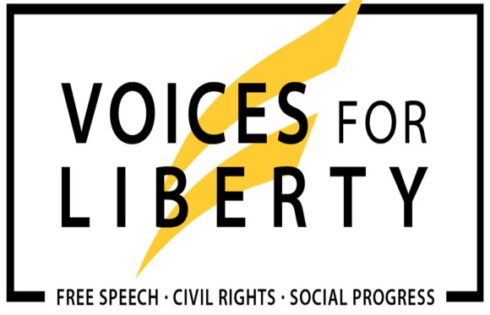
The ‘contest’ never happened
The infamous fraternity “pig roast” is nothing more than a fiction spouted by Cornell University because it was too lazy to notice the difference between an allegation and a verified claim.
The question now should be: Can the Ivy League school be successfully sued for libel, or at least be compelled to fork over a settlement to the fraternity?
The Cornell Daily Sun reports that the administration admitted it “mischaracterized” the findings of a Fraternity and Sorority Chapter Review Board investigation into Zeta Beta Tau.
“Mischaracterized” is far too charitable.
The Cornell chapter was accused of holding a contest to see who could have the most sex with women, with an even more crude tie-breaker. Here’s how the Cornell hazing violations page for the 2016-2017 academic year described the board’s findings, as recently as a June 14 archived version:
An investigation that concluded in January of 2018 determined that the chapter conducted a contest in which new members could accumulate “points” by engaging in sexual intercourse with women. The contest was referred to as a “pig roast.” In the event of a tie, additional points were awarded to the new member who had had sex with a woman who had weighed the most. The new members were told not to inform the women of the contest.
The page continues that the board found this constituted hazing and “Expectation of Membership” violations.
ZBT was put on probation for two years and ordered to complete several tasks: conducting internal and external reviews, hiring a live-in advisor, undergoing “ongoing education on sexual violence” from a campus entity, fulfill “75 percent participation” in at least two Sexual Assault Awareness Week events that spring, and monthly meetings with the Office of Sorority and Fraternity Life that should include a national ZBT representative.
No evidence to back allegation, but ZBT is still on probation
Sometime between June 14 and July 29, the page was changed. Rather than admit it made false claims about ZBT with no credible evidence, it used weasel language to evade responsibility:
Now the university has specified that it received three reports, two of them “non-anonymous,” that ZBT “encouraged” the sex contest:
The chapter denied the allegations, however chapter leadership stated that if “something” happened then it must have occurred without the knowledge of the fraternity leadership and without fraternity sponsorship. The Fraternity and Sorority Chapter Review Board considered all the evidence presented, including two non-anonymous reports, and concluded it was “more likely than not” that the allegation — someone associated with the chapter encouraging new members to participate in the contest — occurred.
Here’s the kicker: The board “did not have evidence” that anyone in ZBT “had in fact acted on such encouragement or that the contest had actually occurred.”
This is a far cry from the hazing violations page’s claim – from February through at least June 14 – that an investigation found “the chapter conducted a contest.” It certainly didn’t mention that 1) the board used the preponderance standard of evidence (“more likely than not”) to 2) find that “someone associated with the chapter” encouraged new members to compete for sex with women.
And why was ZBT put on probation for two years with no evidence? The page now explains:
The Review Board, pursuant to its charge, considered the current allegations (the contest), the chapter’s history of misconduct, the overall health of the organization, and the chapter’s ability to comply with University and Greek policies in determining whether there should be any change to the chapter’s recognition status with the University. The Review Board concluded that there was an important opportunity to employ substantial educational interventions to improve the chapter’s culture and recommended sanctions accordingly.
In other words: These allegations were used as a fig leaf to punish ZBT for past sins. But Cornell didn’t tell the community, and indeed the world, that there was no evidence to back the allegations or even how it reached the conclusion that someone was advocating “the contest.”
The truth didn’t come out because of Cornell’s realization of its blunder. It came out because ZBT “hired a third-party investigator” to look into Cornell’s claims, which revealed the university used “incomplete information” – and indeed, had no evidence – to back its claims, a fraternity spokesperson told the Sun.
ZBT is still on probation, however, and the university doesn’t plan to change anything. “Some of the statement language mischaracterized” the board’s findings, but Cornell’s new review “concluded the findings, recommendations and the sanctions imposed by the university as a result of the Review Board’s recommendation were appropriate,” spokesperson John Carberry told the Sun.
Even a 53-member fraternity is ‘sufficiently small’ for members to be defamed
The chapter’s public statements suggest it’s not interested in pursuing legal action against Cornell, but if it wanted to, it should look at how the University of Virginia’s Phi Kappa Psi responded to the discredited Rolling Stone article accusing it of gang rape.
Rolling Stone paid the fraternity itself $1.65 million a year ago to avoid a trial where Phi Kappa Psi was seeking $25 million for defamation. The publication reached another settlement in December with members who claimed the article provided enough details that they were publicly identified as “being involved in the [fictional] assault” and harassed as a result.
While a federal judge threw out the members’ suit in 2016, last September the 2nd U.S. Circuit Court of Appeals reinstated it for two of the three members who sued.
As The Hollywood Reporter noted at the time, the appeals court used a “group defamation” theory and found that even the 53-member fraternity is “sufficiently small” for the members to be successful in litigation, because they are “readily associated with the group.”
Judge Katherine Forrest wrote:
Taking the allegations in the Article together, a reader could plausibly conclude that many or all fraternity members participated in alleged gang rape as an initiation ritual and all members knowingly turned a blind eye to the brutal crimes. Indeed, [article author Sabrina Rubin] Erdely suggested such an interpretation in her Podcast interview.
This should scare the bejesus out of Cornell if individual ZBT members want to sue the university for defamation.
Like Rolling Stone, it publicly said the fraternity committed a sexual violation. It didn’t notice the error for four months or more. The hazing violation page did nothing to limit the scope of culpability within the fraternity – indeed, it suggest this “contest” was run from the top down.
And Cornell is subject to the 2nd Circuit’s jurisdiction, should a lawsuit by the members reach an appeal. ZBT doesn’t appear to state anywhere how many members it has, but if it’s anywhere near 50, the members have a direct precedent to cite in litigation. (The chapter did not respond immediately to a message on its Facebook page Monday afternoon, though it “[t]ypically replies within an hour.”)
According to a 17-year-old explainer from the Student Press Law Center, four elements must be established to prove libel. With the addition of the 2nd Circuit precedent, Cornell appears to meet all four tests:
It published a false statement about the fraternity, which is composed of “private persons.” The statement was portrayed as factual, not opinion, and it was made negligently, since the university didn’t bother to verify what the review board actually found before publicizing it on the internet.
Even if a court were to determine the members were public figures, Cornell was still “reckless in verifying” the accuracy of its published statement. The statement unquestionably was “harmful” to both the entire fraternity and its members: It “seriously shames, ridicules, disgraces or injures a person’s reputation or causes others to do so.”
The only caveat Cornell could cite is that, when the explainer was published, “several courts” had imposed an informal cutoff of 25 members in a group. The 2nd Circuit has already said a 53-member fraternity is “sufficiently small” that its individual members could be identified and defamed for their association with the entity.
ZBT members, to say nothing of the fraternity as an entity, have every reason to pursue litigation for this negligent public statement that has caused them verifiable harm for the past seven months (when Cornell finally admitted outside of the hazing violation page it was wrong).
IMAGE: Shutterstock





Please join the conversation about our stories on Facebook, Twitter, Instagram, Reddit, MeWe, Rumble, Gab, Minds and Gettr.